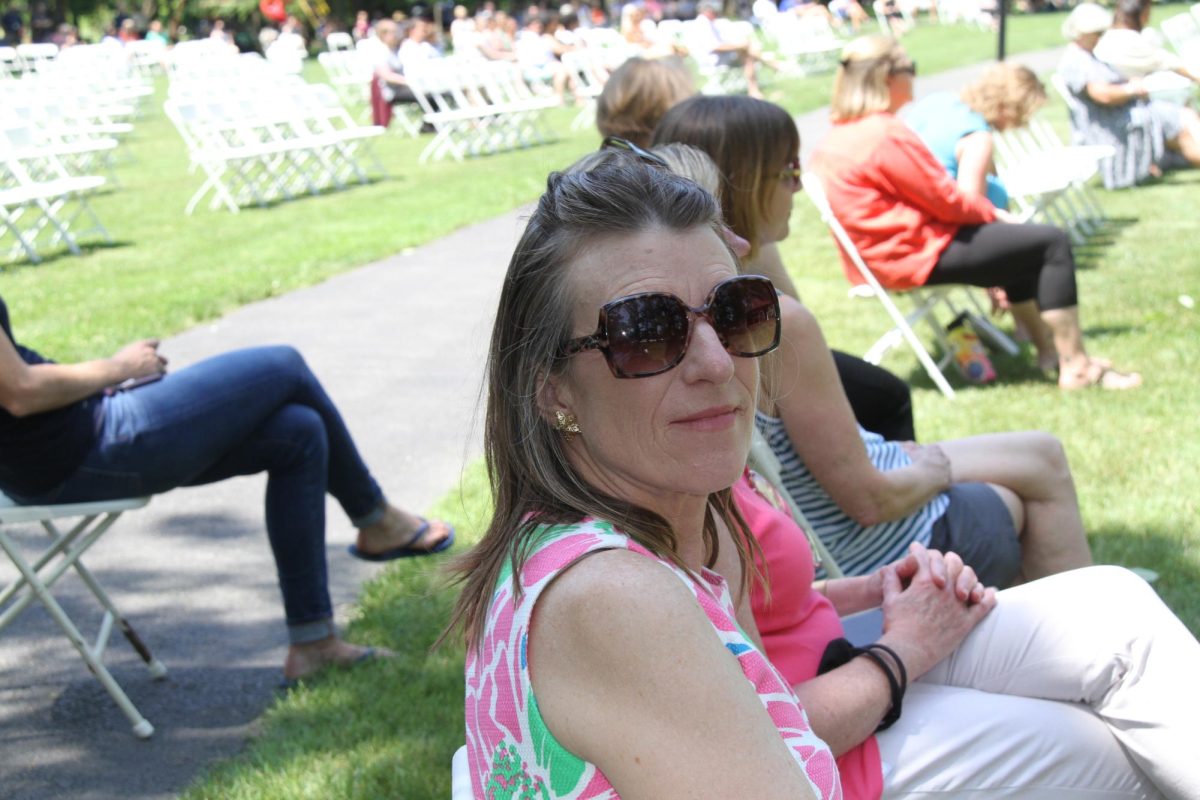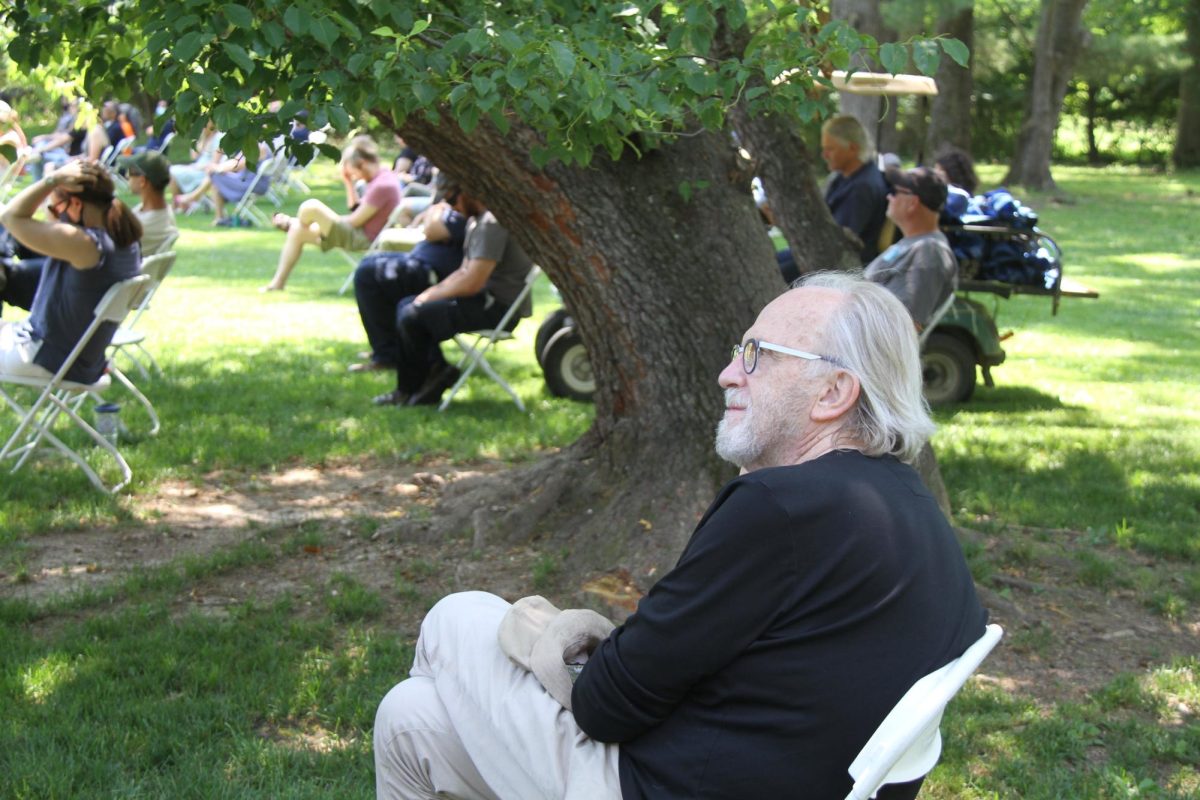Three Weeks in: How Well has PDS Handled Online School?

Princeton Day School’s Website displayed this announcement on its homepage the day the announcement was made. (Photo/PDS)
April 17, 2020
As the U.S. practices social distancing due to the Covid-19 pandemic (talk about better late than never), members of the PDS community face a new dilemma: online school. What a different experience! PDS online school is asynchronous, so freedom and flexibility is gained at the cost of losing the environment of working alongside fellow peers. Curricula and grading criteria have also been adjusted to accommodate the lack of school equipment and meeting times. In addition, the workload has been capped at one hour per class, which is significantly lower than the normal amount of classwork and homework combined.
Well, faculty and students have already zoomed through the first three weeks, and there is, as always, a spectrum of different opinions within the Upper School.
Some have embraced the changes. Sophomore Gautam Ravipati thinks that, “PDS has made the transition to online school very smooth. My teachers are handling this very well, and are trying to make online school no different from normal school. Overall, we are all off to a very well start.” Indeed, the efforts of the PDS faculty should be commended; they got back to work a week earlier than the students (who essentially received an extra week of Spring Break) in order to prepare their courses and make sure they can provide the best support possible in the weeks to come. Others, such as junior Saahith Potluri, think that PDS “was prepared to handle something like [online school] because we are heavily reliant on technology at PDS anyway.” This is a very valid point. PDS curricula have generally integrated diverse forms of technology in order to make learning more efficient and interesting, and this model has been very valuable in times of crisis. A few other students have been taking advantage of the flexibility provided by online learning, such as sophomore Linda Qu, who has been “watching the ducks in her backyard.”
However, many students have complained that one of the most important pieces of technology that every teacher uses—Schoology—is not exactly well-prepared for online school. Its servers have been overloaded due to unprecedented levels of demand, crippling PDS as a result. It was a frustrating experience for both faculty and students as they couldn’t do much besides wait and wait. Regarding this issue, junior Maya Shah expressed her stance that PDS online school works “about as well as Schoology works.” Faulty Schoology servers are indeed a technical difficulty that desperately needs to be solved in the future.
Some students don’t really experience a notable difference between offline and online learning. Junior Arthur Zhu exclaims that he, “still hates school work and ain’t nothin’ changed.” To which junior Matan Blitz responds, and I quote, “Is it supposed to be positive?” Classic Matan. From another perspective, the change of learning methods doesn’t have much effect on expectations, as junior Jessie Lin notes: “No matter how good or how bad or how efficient or how inefficient, it doesn’t matter in the end because [students] have to learn the content and know the content anyway.” This sentiment is especially applicable to AP classes that follow a fixed curriculum set by the notorious College Board.
But some share a different view of online school. An anonymous member of the PDS community has stated that without in-person classes, “It’s impossible to really learn new material.” Additionally, there is “no accountability to prevent cheating on online tests” and a few may “fail to follow the honor code.” Indeed, online school grants a lot more room for academic dishonesty, but in the end those who choose to genuinely learn the material provided are the ones who will be truly rewarded.
Faculty are also adjusting to this change. Freshman Dean and Upper School History Teacher Stephanie Santangelo has acknowledged that “planning for this situation is extraordinarily [difficult]” due to “the lack of models and historical examples.” She expresses that “there are bound to be bumps in the road and the technology will occasionally fail us,” but she is certain that “faculty and administrators have put a tremendous amount of thought and care into how excellent teaching and learning can continue to happen.” Photography teacher Thatcher Cook has been taking the approach that “there is room to make student work shine with a different patina” as well as having informal conversations with students, some of which have been “the most poignant and important” of his career, to navigate through this difficult time. He mentions the difficulty of “vast online accounting of who is where, when, and have they passed in their work on time.” Both Ms. Santangelo and Mr. Cook miss seeing their students in class and interacting with them; however, Mr. Cook notes that “we will come out on the other side with a gained appreciation for human interaction and time spent in nature.”
It has only been three weeks since the start of online school—both faculty and students are still getting used to the new rhythm. However, there is no doubt that the PDS community will support and help each other, both academically and personally, through this crisis. And as Mr. Cook notes, when all this is over, we may find new appreciation for the simpler things in life.





